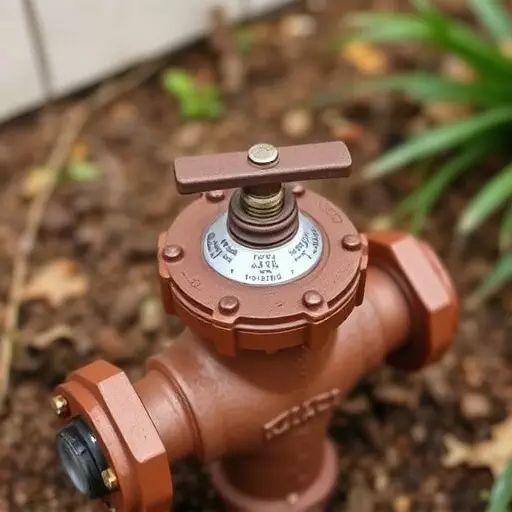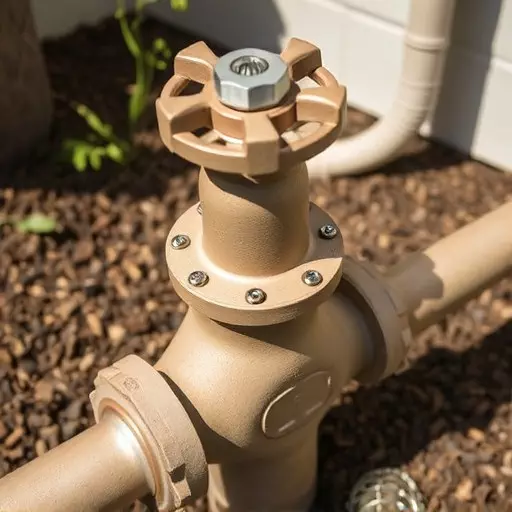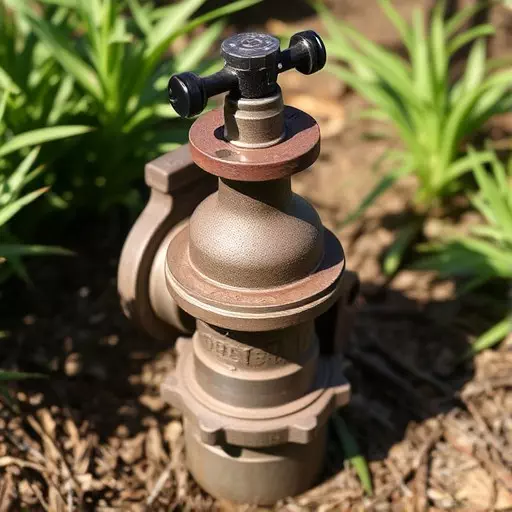Annual backflow compliance testing is mandatory in Jacksonville for both commercial and residential properties, ensuring water safety by preventing contaminated water from entering the main supply. Commercial inspections are rigorous while homeowners should schedule regular testing to protect their families. Regular testing, maintenance, and proper device installation are crucial to avoid test failures and maintain water quality standards.
Backflow compliance testing is a crucial aspect of maintaining safe water systems in Jacksonville, ensuring that water flows in one direction, preventing contaminants from entering potable water supplies. This article explores the significance of annual backflow preventer testing for both residential and commercial properties. We delve into the role of backflow devices, the inspection process, common issues, and provide a step-by-step guide for residential testing, empowering Jacksonville residents and businesses to safeguard their water systems.
- Understanding Backflow Compliance Testing
- Why Annual Testing is Essential for Jacksonville Residents and Businesses
- The Role of Backflow Preventer Devices in Water Safety
- Commercial Backflow Inspection: Ensuring Safe Water Systems
- Residential Backflow Preventer Testing: A Step-by-Step Guide
- Common Issues and How to Prepare for Your Next Test
Understanding Backflow Compliance Testing
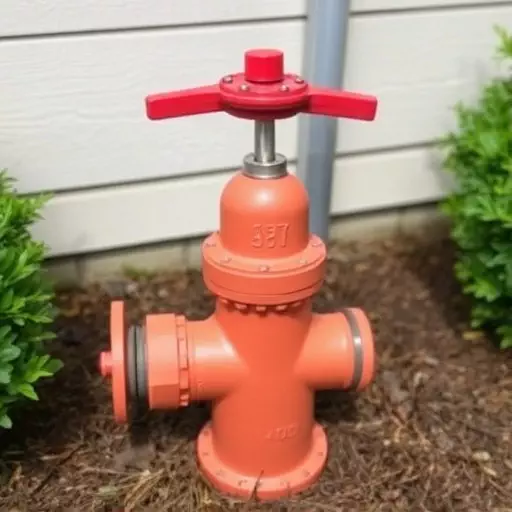
Backflow compliance testing is a crucial aspect of maintaining water quality and safety in both residential and commercial settings. In Jacksonville, annual backflow preventer testing is not just a regulatory requirement but also a vital step to ensure your plumbing system doesn’t inadvertently introduce contaminated water into the main supply. These tests are designed to verify that backflow preventers—devices installed to stop contaminated water from flowing back into the potable water system—are functioning properly.
For commercial properties, comprehensive backflow preventer inspections are essential to meet health and safety standards. Professional inspectors will assess the condition of these critical components, ensuring they meet specific code requirements. Similarly, homeowners in Jacksonville should schedule regular residential backflow preventer testing to safeguard their families from potential water contamination. By adhering to these guidelines, residents and businesses can contribute to a healthier, safer community.
Why Annual Testing is Essential for Jacksonville Residents and Businesses
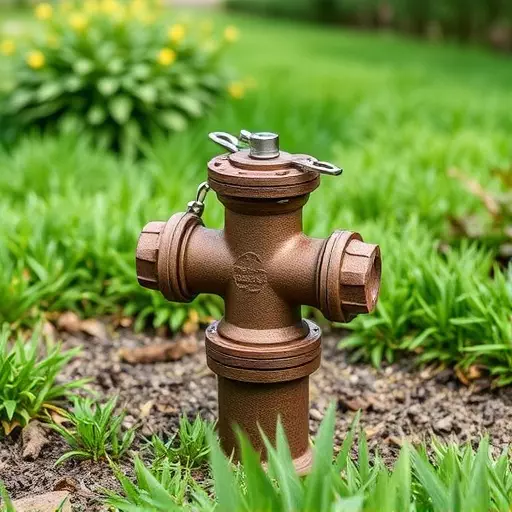
For Jacksonville residents and businesses, regular annual backflow compliance testing is non-negotiable. It’s a critical step in maintaining water safety and preventing potential hazards like contamination and flooding. Backflow preventers are devices that stop contaminated or potentially harmful water from flowing back into the main water supply. Over time, these mechanisms can wear out or malfunction, making annual testing crucial to ensure they’re functioning properly.
Annual testing not only identifies any issues with backflow preventers but also helps to maintain compliance with local regulations. Jacksonville has strict guidelines regarding backflow prevention, and regular inspections demonstrate a commitment to public safety and water quality. For businesses, this means avoiding costly fines and potential disruptions to operations, while for homeowners, it ensures peace of mind knowing their water supply is safe and protected.
The Role of Backflow Preventer Devices in Water Safety
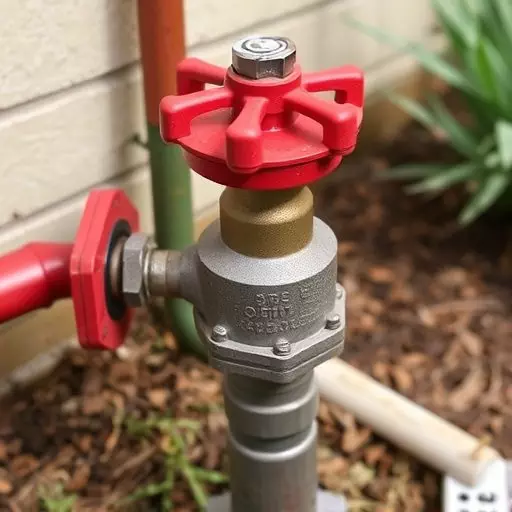
Backflow preventer devices play a crucial role in maintaining water safety, especially in areas where potential contaminants could enter the main water supply. These devices are designed to stop backflow, which refers to the unwanted flow of water or other substances from a contaminated source into the potable water system. In Jacksonville and across Florida, annual backflow preventer testing is not just a regulatory requirement but also a vital step in ensuring the safety and quality of drinking water.
For both commercial and residential properties, regular backflow inspection and testing are essential. Commercial backflow preventer inspections involve rigorous checks to ensure these devices are functioning optimally and meeting all safety standards. Similarly, residential backflow preventer testing is critical to safeguard families from potential health hazards. By regularly maintaining and testing these devices, homeowners and businesses can protect their water sources, preventing any unwanted or harmful substances from mixing with the main water supply.
Commercial Backflow Inspection: Ensuring Safe Water Systems

Commercial Backflow Inspection plays a pivotal role in safeguarding water systems, particularly in densely populated areas where multiple businesses and residences share common water supplies. It involves a thorough evaluation of backflow preventer devices, which are designed to stop contaminated water from flowing back into the main water supply. In regions like Jacksonville, where strict adherence to regulations is essential, annual backflow preventer testing is mandatory for all commercial establishments. This rigorous process ensures that these critical safety mechanisms function optimally, preventing any potential contamination of the city’s water system.
During a commercial backflow inspection, trained professionals scrutinize various components of the backflow preventer, including its proper installation, functionality, and maintenance history. They verify that the device complies with local and national standards, such as those set by the American Water Works Association (AWWA). By implementing these stringent measures, Jacksonville’s water authorities can ensure the safety and quality of its water supply, giving residents peace of mind and businesses confidence in their operations. Regular residential backflow preventer testing is equally vital for maintaining these high standards across all sectors.
Residential Backflow Preventer Testing: A Step-by-Step Guide

Backflow compliance testing is a critical component of maintaining safe water systems in both residential and commercial settings. In Jacksonville, annual backflow preventer testing is mandated to ensure that these devices are functioning properly, preventing contaminated water from flowing back into the main supply. This step-by-step guide focuses on residential backflow preventer testing, offering clear instructions for homeowners and property managers.
Begin by identifying the backflow preventer, typically located near the water meter. Inspect the device for any visible damage or corrosion. Next, ensure all valves are in the closed position. Then, connect a test kit to the device, following the manufacturer’s instructions. After performing a pressure test to verify proper operation, record the results. If the backflow preventer passes, you can proceed with annual maintenance; if it fails, contact a certified professional for repair or replacement, ensuring compliance with local regulations like those for commercial backflow preventer inspection.
Common Issues and How to Prepare for Your Next Test

Backflow compliance testing is a crucial aspect of maintaining water safety in both commercial and residential properties, particularly in Jacksonville where annual backflow preventer testing is mandatory. Common issues that arise during these tests often stem from lack of maintenance or improper installation. For instance, clogged or corroded backflow devices can lead to test failures, as can incorrect settings or inadequate documentation.
To prepare for your next backflow preventer test, ensure all devices are well-maintained and free from debris. Regular cleaning and inspection of the backflow preventers is essential. Additionally, verify that all valves are in working order and correctly adjusted according to manufacturer guidelines. Keep detailed records of maintenance activities and inspections, as these documents will be crucial during the testing process. For commercial properties, involve a professional inspector to ensure compliance with local regulations, while homeowners can often handle routine checks and preparation for residential backflow preventer testing.
